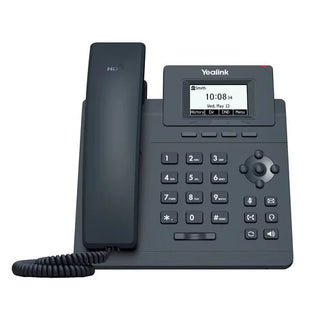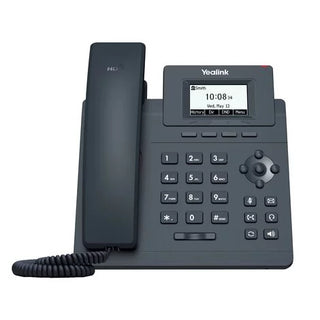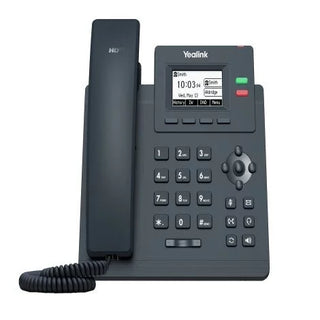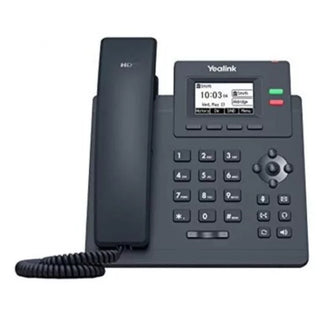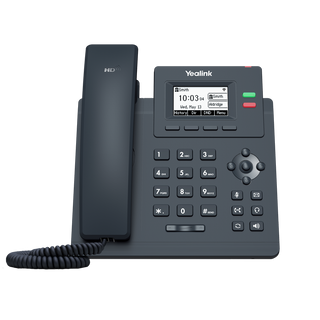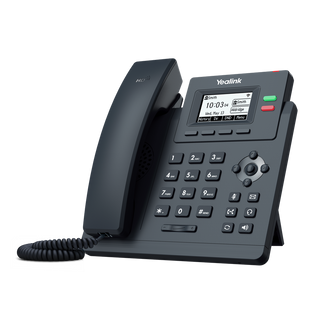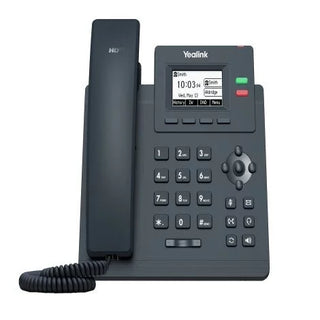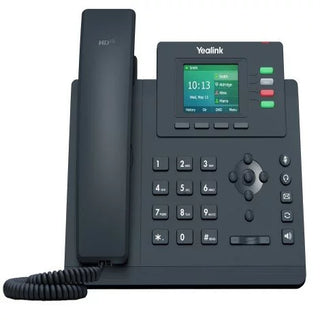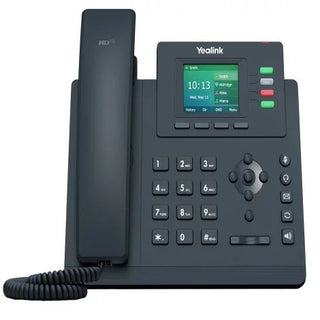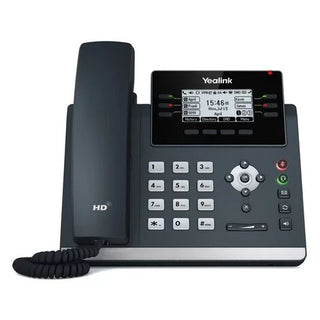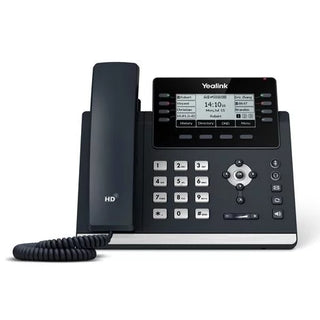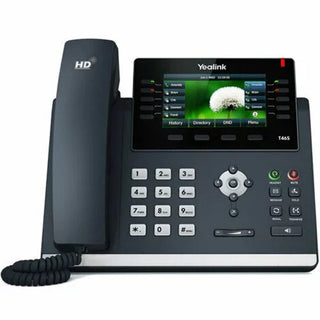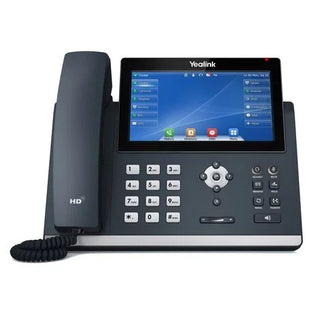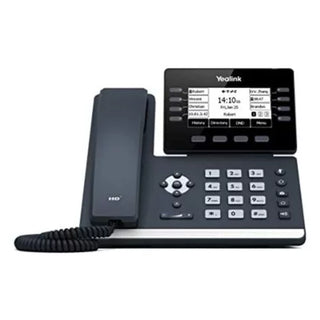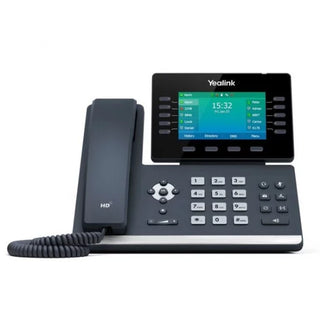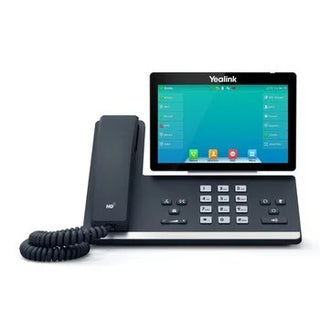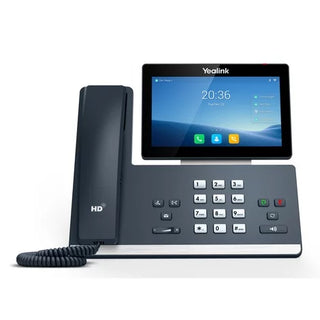What is IP Phone System?
IP Telephone System (Internet Protocol Telephone System) is a telecommunications platform that uses internet protocol (IP) technologies for voice and sometimes video communications. Unlike traditional phone systems, an IP phone system converts analog voice signals into digital data packets and sends these packets over the internet or a local network (LAN).
What Components Do IP Phone Systems Consist of?
The IP phone system generally consists of the following components:
- IP Phones : Phones with special software and hardware are devices that convert analog sound into digital format and send it over the network.
- IP PBX or VoIP Switchboard : It is a switchboard system that manages incoming and outgoing calls, provides internal communication and can connect to PSTN (Public Switched Telephone Network) or other telephone services when necessary.
- VoIP Gateway : Functions as a bridge between VoIP and traditional phone systems. It enables conversion between IP phone system and traditional phone networks.
- Softphone Applications : Software running on computers, tablets or smartphones allows making VoIP calls without a hardware phone.
IP phone systems offer features that enable conversations to be managed efficiently. These include many functions such as call forwarding, automatic secretary, accepting multiple calls, music waiting, voicemail and conference calls.
Advantages of IP Phone Systems
- Cost Effectiveness : Long distance and international calls are generally cheaper.
- Flexibility : You can make calls from anywhere there is internet without being tied to a physical location.
- Rich Features : It offers advanced call management features, video conferences, instant messaging and more.
- Scalability : New lines and devices are easily added as the company grows.
Disadvantages of IP Phone Systems
- Connection Quality : If the Internet connection is bad, sound quality may decrease.
- Energy and Internet Dependency : The system may not work during power outages or internet connection interruptions.
An IP phone system is an ideal solution, especially for businesses with multiple locations, remote workers, or organizations with high phone bills. However, the system requires a quality internet connection and proper installation.
How Does IP Phone Work?
IP telephony (Internet Protocol Telephony) is a telephone system that uses the internet or other IP network for voice communication. So, how does this technology work? Here are the basic components and working process:
What are the Basic Components of IP Phones?
- IP Phone : A device that converts analog voice signals into digital data and sends them over the network.
- Routers and Switches : Devices that direct network traffic and ensure that data packets reach the correct location.
- VoIP Service Provider : A service that enables IP phone systems to carry voice data over the internet.
- IP PBX : A switchboard system where internal and external calls are managed, usually installed for an office or workplace.
IP Phone Working Processes
- Start : A call is made on the IP phone or VoIP software (softphone).
- Digitization of Audio : The microphone captures analog audio signals and the IP phone converts this analog signal into digital data.
- Data Packaging : Digital voice data is divided into small data packets.
- Packet Tagging : Each data packet is tagged with information such as the IP address of the destination to which it will be sent.
- Network Transport : Tagged data packets are routed over the local network or the internet.
- Collection at Destination : Data packets are collected at destination and sorted into their original order.
- Analog Audio Conversion : The collected data packets are converted into an analog audio signal and output as audio through the speakers.
What are the Features and Functions of IP Phone Models?
IP phones generally have the following features:
- Call Forwarding : Forwarding calls to different numbers or devices.
- Multiple Call Receiving : Multiple calls can be received at the same time.
- Voicemail : The ability to leave and listen to voice messages.
- Conference Call : Multiple users can take part in the same call.
What are VoIP Standards and Protocols?
IP phones can use a variety of standards and protocols:
- SIP (Session Initiation Protocol) : It is the most widely used VoIP protocol.
- H.323 : An older protocol used in video conferencing and voice calls.
- MGCP (Media Gateway Control Protocol) : Provides conversion between IP and PSTN.
IP phones attract attention with flexibility, affordability and advanced features. However, a high-quality internet connection and a good installation are required.
How Do Office Phones Work?
Office phone systems are used to manage internal and external communications in workplaces. Although there are different models and technologies, the main purpose of these phone systems is to provide effective communication. Here are the working principles of office phones:
How Do Traditional PSTN Phones Work?
These phones operate over the local telephone network and involve the following processes:
- Physical Connection : Phones are physically connected to a switch (PBX or switchboard) through cables.
- Making and Receiving Calls : When a number is dialed, the PBX receives the signal and routes the call on the appropriate line.
- Call Management : Various operations on calls (for example, call waiting, forwarding) are carried out by the switchboard.
How Do IP Phones (VoIP) Work?
These phones use internet protocol and follow these processes:
- Data Conversion : Audio is converted into digital data.
- Packaging and Routing : Digital data is sent over the network in packets.
- Data Collection and Conversion : Incoming data is converted back into sound form.
- Call Management : The IP PBX or VoIP service provider routes and manages calls.
How Do Hybrid Phone Systems Work?
These are systems that combine traditional and IP phone technologies. It uses a PBX system to which both types of phones can connect.
What are the Key Features of Hybrid Telephone Systems?
- Call Forwarding : Automatic or manual call forwarding to internal or external numbers.
- Call Hold and Music : Music or informative messages for when the call is on hold.
- Voicemail : Capacity to leave and listen to voice messages.
- Conference Calls : For more than one person to make the same call.
- Automatic Secretary : A feature that automatically answers and forwards incoming calls.
What are the Additional Equipment of Office Telephone Systems?
- Headset : To free hands.
- Call Recorder : Recording conversations.
- Video Screen : For video conferencing.
How to Manage and Maintain Office Telephone Systems?
Office phone systems are generally managed through an interface or software. This allows easy configuration of phone numbers, features, and other settings.
A high-quality and effective office phone system plays an important role in improving productivity in the workplace. However, the installation and management of these systems may require professional maintenance.
How to make a VoIP call?
There are several different methods and tools to make VoIP (Voice over Internet Protocol) calls. Here are some of the most common methods:
Hardware Based VoIP
- IP Phone: You can use a phone designed for VoIP services.
- Analog Phone Adapter (ATA): You can make your old phone VoIP compatible with an ATA.
- Computer: You can make VoIP calls with a computer and a microphone/headset.
Software Based VoIP
- Mobile Applications: Skype, WhatsApp, Zoom, and similar mobile applications.
- Desktop Software: Skype, Zoom, Microsoft Teams, etc.
- Web Based Applications: Applications that run via web browser, such as Google Meet, Jitsi Meet.
Steps to Make a VoIP Call
- Service Selection: First, select the VoIP service you will use.
- Registration: Create an account with the service of your choice.
- Hardware/Software Installation: Download the required software or install the hardware.
- Connection: Make sure you have an internet connection.
- Search: Search using your service's interface.
- Conversation: When the other party accepts your call, you can start the conversation.
Tips to Improve Call Quality During VoIP Calls
- A good internet connection improves call quality.
- Headphones and microphones can improve sound quality.
Remember that each VoIP service may offer different features and interfaces, so there will be specific installation and usage instructions for each service. But the basic steps are generally similar.
What is IP DECT phone?
IP DECT phone is a wireless phone system that combines DECT (Digital Enhanced Cordless Telecommunications) and VoIP (Voice over IP) technologies. This system allows users to make voice calls over an IP network using wireless DECT phones.
This type of telephone system usually consists of one or more DECT base stations and one or more DECT wireless handheld terminals. Base stations are connected to an IP network (local area network or internet), usually via Ethernet. In this way, DECT phones are made compatible with a VoIP service or IP PBX (private branch exchange).
Features and Advantages of IP DECT Phone
- Wireless: Since DECT handheld terminals are wireless, users can continue phone calls even while walking around the office.
- Scalability: IP DECT systems can be easily expanded as needed. Adding new handheld terminals and base stations is usually pretty easy.
- High Audio Quality: DECT technology generally provides high-quality audio transmission.
- Security: DECT and IP technologies offer many security features, making data and voice transmission more secure.
- Flexibility and Compatibility: IP DECT phones typically work with the SIP protocol, making them compatible with a variety of VoIP service providers and IP PBX systems.
- Central Management: Since they are IP-based, such systems can usually be easily managed through a central management panel.
- Low Operational Cost: Making calls over VoIP is generally lower cost than standard phone lines.
- Integration: IP DECT phones can be integrated with CRM software, email servers and other office applications, making business processes more efficient.
IP DECT phones are especially ideal for workplaces with large physical areas such as large offices, hotels, hospitals and warehouses.
What is VoIP Mobile Phone?
VoIP (Voice over Internet Protocol) mobile phone is a mobile device that can make voice calls over internet protocol. Here, VoIP is used to make voice or video calls using the mobile device's internet connection, usually through an app or software.
VoIP mobile phones generally come in two types:
- Using VoIP Applications: There are many VoIP applications that you can use on smartphones. WhatsApp, Skype, Zoom, Viber and other similar applications allow you to make voice and video calls over the internet.
- Mobile Devices Integrated with VoIP Service: Although less common, some mobile devices can be directly integrated with a VoIP service provider. This type of configuration can often be more suitable for workplaces or enterprise solutions.
Advantages of VoIP Mobile Phone
- Low Cost: VoIP generally provides cost advantages in local and international calls.
- High Voice and Video Quality: With a good internet connection, VoIP calls are generally of high quality.
- Flexibility and Portability: VoIP applications can be used anywhere in the world with internet access.
- Multiple Functions: It offers multiple communication features such as text, audio, video, file sharing.
- Integration: VoIP can be easily integrated with email, web browsers, social media and other online services.
- Multi-Device Support: VoIP services can often be used on more than one device (mobile phone, tablet, computer, etc.).
Disadvantages of VoIP Mobile Phone
- Internet Dependency: VoIP is dependent on internet connection. If your internet connection is interrupted, you cannot use the VoIP service.
- Latency and Interruptions: Heavy network traffic or slow internet connection can cause delays or interruptions in voice calls.
- Emergency Services: Unlike traditional phone systems, VoIP is generally not integrated with local emergency services.
VoIP mobile phones are especially useful for business meetings, remote working and international communication needs.
< Kısalt
What is IP Phone System?
IP Telephone System (Internet Protocol Telephone System) is a telecommunications platform that uses internet protocol (IP) t... Devamını Gör >
You’re viewing 1-16 of 36 products


